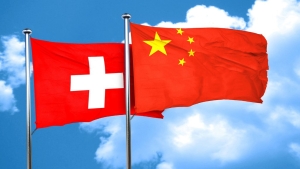An increasing focus on national security in Beijing does not augur well for Chinese companies seeking to list overseas – even in neutral countries like Switzerland. In a nutshell, overseas listings increase China’s international exposure. While that may be good for business, in the current geopolitical environment, it raises concerns in Beijing about the leaking of state secrets in sensitive sectors and data security compliance.
Among the particularities of these new rules is a requirement that the size of the GDR fundraising is “rational” – though no numeric range to specify what would be “rational” is mentioned. The lack of clarity will almost certainly dampen the enthusiasm of Chinese companies to issue GDRs overseas as regulators could easily question any deal size they deem not “rational.”
With that in mind, Chinese battery giant CATL's plan to raise at least US$5 billion on the SIX was put on hold in March, reportedly because of the deal’s large size. Regulators probably put the brakes on the deal because Chinese President Xi Jinping publicly expressed reservations about the company’s status. CATL has a market value of US$139 billion and controls 37% of the global battery market. Regulators are also scrutinizing why CATL needs to raise another US$5 billion after raising almost US$6.6 billion in a domestic share placement in June 2022.
There are several other reasons Chinese regulators are wary of mega-GDR deals. According to Reuters, offshore investors usually buy shares of Chinese issuers' GDRs with a 10% discount and convert them into corresponding Chinese shares after 120 days of trading on European boards. Better liquidity on the domestic Chinese market allows investors to exit more easily. Yet during this process of moving capital out of China, some of China’s foreign exchange reserves are consumed, while issuers usually keep the proceeds raised for overseas use.
Another factor that regulators may be considering is the poor performance of Chinese GDRs on the SIX Swiss Exchange. Most have fallen sharply listing on the SIX and trading of their shares has been tepid. One reason for that is that European investors are unfamiliar with many of the Chinese companies that have listed in Switzerland thus far.
Even when GDR deals do end up getting approved, the process is expected to significantly increase underwriters' costs, workload, and responsibility in vetting the deals. The listing process will become longer, while issuers may think twice about choosing to issue GDRs for capital-raising.
Bloomberg data shows that Chinese firms raised nearly US$4 billion in Europe through GDR sales in 2022 when the Shanghai-London Stock Connect cross-border listing program was expanded to link Zurich and Frankfurt with Shanghai and Shenzhen. Thus far in 2023, just four deals have been priced, raising a total of US$1.1 billion.

